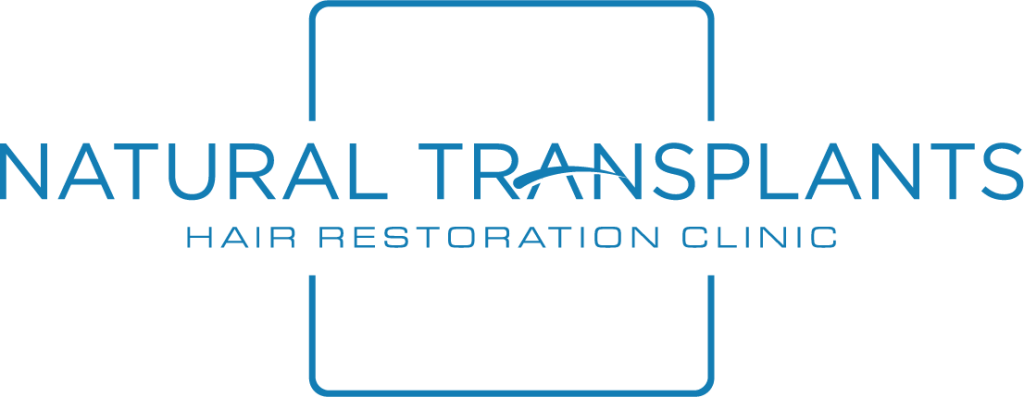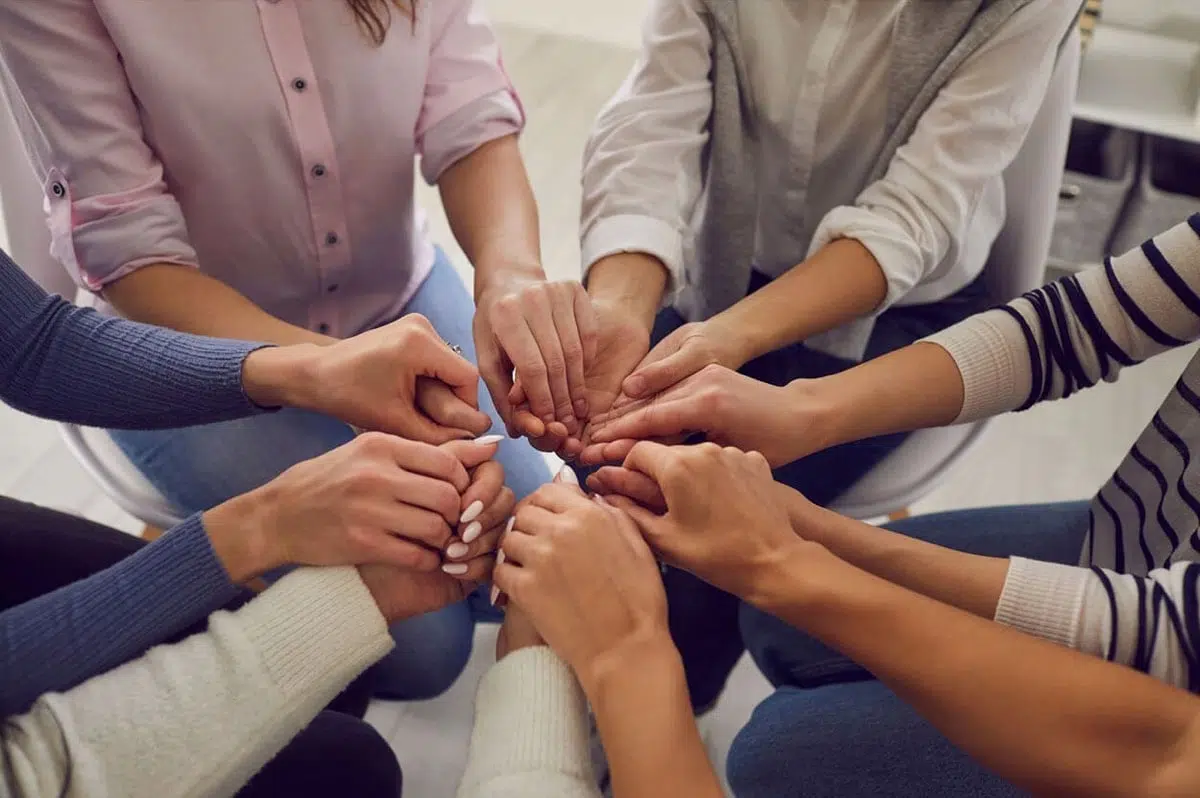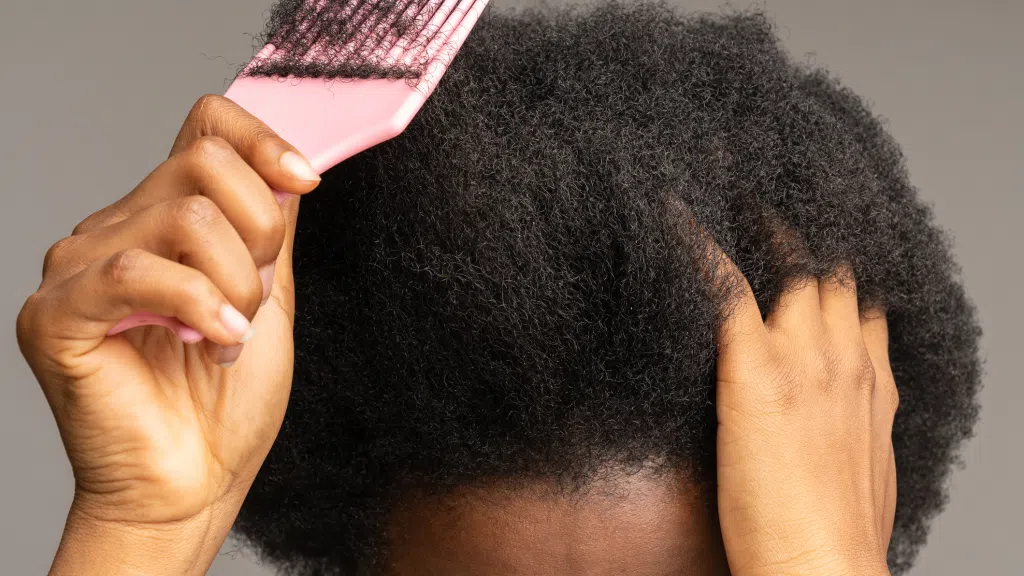Women With Alopecia Areata Can Find Support to Overcome The Challenges of Hair Loss
Hair loss can impact women mentally and affect their self-esteem.
There is so much emphasis on how we look. There is a societal expectation for women to have great hair. Hair is a part of my femininity and hair loss can be very upsetting to go through and to live with.
While Alopecia Areata is not life-threatening, it can be life-altering for women. For women affected by Alopecia Areata, it’s difficult to adjust to a new self-image. During the hair loss process, you go through stages of grief.
Unlike other types of hair loss, Alopecia Areata is an autoimmune disease, and people who have it are not afforded the option of a hair transplant. Until recently, there have not been effective treatment options.
Living with Alopecia Areata can be difficult. Women can feel very alone as a result of Alopecia. Female Alopecia support groups work to empower women with Alopecia, make sure their voices are heard, and to know that they are not alone.
In this article, we will review some great communities for women affected by Alopecia Areata. These groups offer women a space to share their stories and get the help and advice they need.
Types of Alopecia Areata:
Before we proceed with the support groups, it’s important to review each type of Alopecia Areata, and the differences between them:
- Alopecia Areata – hair that falls out in patches, usually on the scalp but can also affect eyebrows, eyelashes, and elsewhere on the body.
- Alopecia Totalis – an autoimmune disease in which the entire scalp experiences hair loss.
- Alopecia Universalis – the most severe form of Alopecia Areata, in which the autoimmune system attacks hair follicles and causes complete loss of hair on the scalp and the body.
Organizations Empowering Women With Alopecia Areata
Alopecia doesn’t have to define you. Discussing hair loss can help. Connecting with other women to share personal experiences, and seek advice. It can help you come to terms and embrace the beauty of baldness.
It cannot be overstated how valuable it is for women who may feel secretive and ashamed about having Alopecia areata to finally meet others like themselves.
Here are a few Alopecia support groups to consider reaching out to:
BALD GIRLS DO LUNCH
Thea Chassin, Founder
The mission of Bald Girls Do Lunch is to help women diagnosed with Alopecia Areata and end the stigma and shame of women’s hair loss. Thea, founder of Bald Girls Do Lunch, launched this effort when she couldn’t find a support group after her own diagnosis. Women can get the support they need through in-person events, resources, sharing stories, and, of course, going out for lunch.
What is the mission of Bald Girls Do Lunch?
“The mission of Bald Girls Do Lunch® is to ensure women with alopecia areata know they aren’t alone and get the resources needed to live normal lives.
It’s easy for women to feel isolated in response to this disease, particularly if nobody else in their lives has it. Our community helps women connect with others who have alopecia areata so they don’t feel alone.
When I was first diagnosed and my hair loss became severe, I had no hair to make a hairdo. I looked for support, but the information I was looking for wasn’t easy to find. My first reaction was to restore myself, and be the best version of my current self I could be. The more research I did, the more I realized I actually had a ton of options to feel okay. Once I understood that, I wanted to make sure other women with alopecia areata knew.”
What are some of the challenges that women with Alopecia face?
Finding an option that works for them.
“Going out bald is not a goal for women, but it is an option. We want to emphasize that women with Alopecia areata have choices, such as wearing hats, wigs or headwraps. Figuring out what works for you shouldn’t be determined by what you think other people want. Instead, women can gradually restore confidence in themselves and their decisions to feel their best. You always have a choice to change it up on your terms. Try not to let fear of others’ opinions hold you back from that.”
Feeling more confident.
“The fear of what others think can be debilitating. You may not consider all of your options if you’re too worried about how others will perceive you. The truth is, people (especially in public) don’t care nearly as much about your looks as you may think. We want women to focus on building their confidence, and working toward whatever makes them feel their best and most comfortable in social situations. As you regain confidence, other people’s thoughts or opinions won’t be as important.”
Feeling comfortable in social situations.
“For women dealing with alopecia areata, it’s natural to retreat from social situations. You may not know how to talk about it, and you may worry you’ll be rejected for it. The challenge is how to manage it. Some women may prefer to blend in, while others prefer to embrace it and stand out – it can depend on your personality.”
Being mistaken for cancer.
“As cancer has become discussed more openly, many equate bald women with chemotherapy. They may not know about auto-immune hair loss diseases. It’s common for women with alopecia areata to experience this, and they may not know how to talk about alopecia areata. We caution women against certain style choices that may get them mistaken for a cancer patient – for instance, wearing a tiny bandana.”
Handling relationships.
“Part of living with alopecia is how you handle hair loss with family and friends. The number one thing we try to encourage is being truthful and upfront. Not telling the truth can make the alopecia journey extra bumpy. For instance, some women hide the fact that they’re bald from children or grandchildren fearing that it will scare them. But experience shows that children naturally notice things that are different, are simply curious and are very accepting with a simple explanation. Handling relationships goes back to self-confidence.”
Why is lunch a great setting for women with Alopecia?
“The idea for lunch came one hot and humid summer, when women I knew with alopecia areata were interested in going out without their wigs. However, they didn’t want to debut by themselves. Bald Girls Do Lunch was born!
Meeting in a public setting like a restaurant or café is a great opportunity to normalize the appearance of bald women and educate people. It sends a message that it’s as okay for women not to have hair as men.
Lunch is perfect because it’s a social and pleasant environment which helps women feel comfortable. It’s conducive to learning from others and sharing experiences. By comparison, your standard ‘ support group’ doesn’t always make people feel comfortable, and women may leave feeling worse about themselves.
These women share common experiences, though they may have begun their hair loss journey at different times of life. While the name of our organization, Bald Girls Do Lunch, includes ‘bald’, we’re not offering just bald as the only choice. We want to normalize going bald as an option, but women who are not ready to embrace going bald are also encouraged to join in.”
National Alopecia Areata Foundation (NAAF)
Gary Sherwood, Communications Director
The National Alopecia Areata Foundation (NAAF) is a nonprofit organization that serves the community of people affected by an autoimmune skin disease called Alopecia areata that results in hair loss and emotional pain. The NAAF has support groups nationwide that provide individuals experiencing hair loss a comfortable and trusting environment to help share their personal experiences and challenges with Alopecia Areata.
What are some other NAAF programs that empower women with Alopecia?
“Women who experience Alopecia experience a sense of loss, and they’ve been robbed of their appearance. With the media’s emphasis on having long hair, women will wear wigs, which can be uncomfortable in hot or humid environments. You feel like you’re the only person who has the disease, when In reality, 2.1% of the population will be diagnosed.
Joining a support group allows people to connect with others who experience the same feelings and challenges. They can tell you what they’ve learned from their experience, particularly if they’ve had the disease for a while. Ultimately, we want to empower the Alopecia community. You’ll feel supported and empowered if you are doing something to fight against this disease.”
What are some other NAAF programs that empower women with Alopecia?
“Our annual patient conferences are similar to support groups, but, because these events are on a much larger scale, they get a boosted sense of empowerment and a life-changing experience. Our 2024 conference will be held in Washington, D.C. from June 27-30.
With our youth mentor program, children ages 5-17 can connect with a peer mentor between ages 17-30 who have Alopecia Areata. Parents can visit our website and select a vetted mentor in the area, or virtually.
Another way to feel empowered is to join our legislative liaison program and meet with lawmakers. For instance, if you have Alopecia areata and want to wear a wig, most insurance carriers won’t cover that, claiming Alopecia Areata as cosmetic. We encourage women with Alopecia to join our legislative liaison program to get legislation passed that will provide coverage and compensation.”
What types of treatments exist for Alopecia?
“Recently, there have been great strides in treatment options for Alopecia that are effective and 100% safe. In 2022, two months after the infamous “Oscars slap”, the FDA approved Olumiant (baricitinib) oral tablets to treat adult patients with severe Alopecia areata. One year later, the FDA approved Litfulo, the first Alopecia treatment for adolescents age 12 and older, which is monumental considering Alopecia typically starts during childhood.
Now, women can access these game-changing medications through their dermatologist, and see hair growth. More treatments are expected to hit the market in the future. And while there’s no cure, we are working on it. With recent advancements in treatment, our goal is to end our annual conferences and replace them with reunions.”
NAAF Support Groups Across the Nation
Find a list of local support groups here.
What Types of Hair Loss Can a Hair Transplant Treat?
Hair transplants are typically used to restore hair loss following female pattern hair loss (Androgenetic Alopecia) or hair loss caused by constant pulling of the hair (Traction Alopecia).
For those with Alopecia Areata (including Alopecia Totalis and Alopecia Universalis), a hair transplant is rarely a suitable option. We recommend you see a dermatologist for treatment.
If you have more questions about Alopecia, hair loss, and whether a hair transplant procedure is a sensible option, the doctors at Natural Transplants provide an honest assessment of your hair loss and whether a hair transplant procedure is an option. There are currently clinics in Washington DC and Fort Lauderdale that also offer travel incentives to patients.


